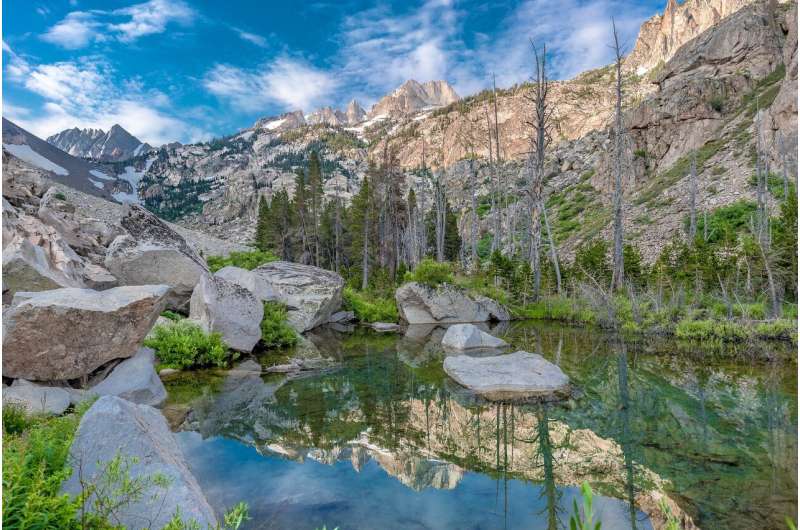Editorial: Protect California's environmental legacy from Trump's onslaughts

California's native species and its precious water resources are in serious need of some Trump insurance.
The state has laws that safeguard threatened wildlife and regulate water quality. But they are muscles and sinews that function only because they are attached to the bones of strong federal environmental laws adopted by forward-looking Congresses and presidents since the 1970s. Now those federal bones are beginning to dissolve.
President Trump came into office declaring global warming a hoax perpetuated by China, the drought a figment of Californians' imagination and environmental protections a plot to undermine the U.S. economy. His departments and agencies have moved to weaken or eliminate dozens of protections, and the rollbacks are coming so fast it's not always possible for the state to keep up.
It's not for lack of trying. On Tuesday, the State Water Resources Control Board approved new standards to protect California's wetlands and seasonal streams and ponds that are slated to lose their current federal protection under the Clean Water Act as part of the Trump administration's rollbacks. The water board's nick-of-time move is welcome—but state water regulators had been working on it for a decade and probably sped up the process in response to the rollback. They and other bureaucracies can't possibly move fast enough to defend against Trump efforts to eliminate species protections in the Sacramento-San Joaquin River Delta or elsewhere in California.
That's why the state needs Trump insurance. Lawmakers are now considering such a policy in the form of Senate Bill 1. Written by Senate President Pro Tem Toni Atkins (D-San Diego) and a handful of her colleagues, the bill would prevent environmental backsliding by keeping in place—this time as state standards—the federal protections of the Clean Air Act, the Clean Water Act, the Safe Drinking Water Act and the Endangered Species Act as they existed prior to Jan. 20, 2017. That's the day Trump took office.
In other words, it keeps in place the status quo.
The bill's opponents in agriculture and industry complain that it imposes new uncertainty, making it more difficult and costly to plan construction projects or expand ongoing operations. But they have it exactly wrong. The bill eliminates uncertainty by keeping current standards and regulations.
Their actual reason for opposing SB 1 is more likely that they were looking forward to the kind of deregulation that would make it easier for them to foul rivers and streams, divert water and take other actions that could harm birds, fish and other animals. Those are exactly the kinds of rollbacks that California can't afford.
State rollbacks could still occur if warranted, even if the bill becomes law. Species could still be removed from the state's endangered list, upon evidence that their numbers and prospects for survival have recovered. Rules for draining wetlands or filling in streams could still be changed. But it would be up to state lawmakers and regulators, and not just officials in Washington.
Opponents may also be unhappy with a provision of the bill that keeps in place the current level of labor protections for all workers in California—under workplace safety and whistleblower regulations, for example—even if the Trump administration lowers them nationwide. For most Californians, that's one more good reason to support SB 1.
One less noticed feature of the bill is that it protects Southern California's water supply by preventing the State Water Project—which delivers water from the delta to L.A. and adjacent areas—from shouldering the environmental responsibilities of the federal Central Valley Project, the parallel system that irrigates San Joaquin Valley farmland.
The Trump administration has tried to increase exports of delta water to farmers, leaving less water in the San Joaquin River and its tributaries to sustain migrating salmon. Without SB 1, if the Central Valley Project pumps too much, it could fall to the State Water Project to keep river flows within current environmental standards, leaving less water to send to Southern California residents.
An earlier version of SB 1 was introduced last year but never made it to the governor's desk. Since then, the danger of Trump rollbacks has only grown. It is time for the state to protect itself by adopting SB 1.
©2019 Los Angeles Times
Distributed by Tribune Content Agency, LLC.



















